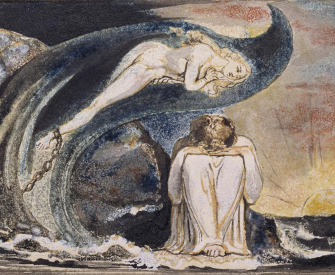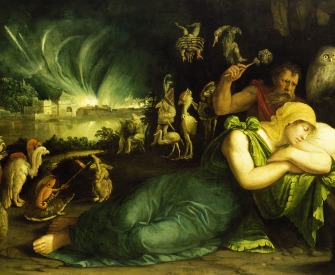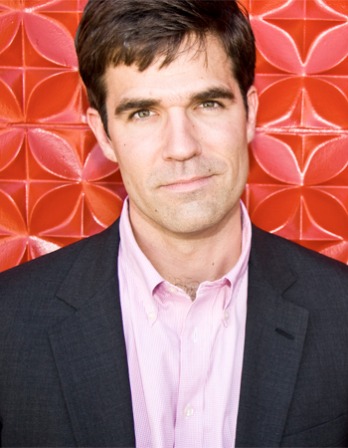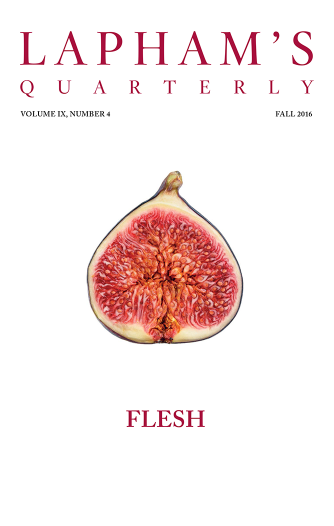All civilization has from time to time become a thin crust over a volcano of revolution.
—Havelock Ellis, 1921Getting on the Train
Nathaniel Hawthorne blows some smoke.
The conductor applied for Clifford and Hepzibah’s tickets, and Clifford, who had made himself the purse bearer, put a banknote into his hand, as he had observed others do.
“For the lady and yourself?” asked the conductor. “And how far?”
“As far as that will carry us,” said Clifford. “It is no great matter. We are riding for pleasure, merely!’’
“You choose a strange day for it, sir,” remarked a gimlet-eyed old gentleman on the other side of the car, looking at Clifford and his companion as if curious to make them out. “The best chance of pleasure, in an easterly rain, I take it, is in a man’s own house, with a nice little fire in the chimney.”
“I cannot precisely agree with you,” said Clifford, courteously bowing to the old gentleman, and at once taking up the clew of conversation which the latter had proffered. “It had just occurred to me, on the contrary, that this admirable invention of the railroad—with the vast and inevitable improvements to be looked for, both as to speed and convenience—is destined to do away with those stale ideas of home and fireside and substitute something better.’’
“In the name of common sense,” asked the old gentleman, rather testily, “what can be better for a man than his own parlor and chimney corner?’’
“These things have not the merit which many good people attribute to them,” replied Clifford. “They may be said, in few and pithy words, to have ill served a poor purpose. My impression is that our wonderfully increased and still increasing facilities of locomotion are destined to bring us round again to the nomadic state. You are aware, my dear sir—you must have observed it, in your own experience—that all human progress is in a circle; or, to use a more accurate and beautiful figure, in an ascending spiral curve. While we fancy ourselves going straight forward and attaining at every step an entirely new position of affairs, we do actually return to something long-ago tried and abandoned, but which we now find etherealized, refined, and perfected to its ideal. The past is but a coarse and sensual prophecy of the present and the future. These railroads—could but the whistle be made musical, and the rumble and the jar got rid of—are positively the greatest blessing that the ages have wrought out for us. They give us wings; they annihilate the toil and dust of pilgrimage; they spiritualize travel! Transition being so facile, what can be any man’s inducement to tarry in one spot? Why, therefore, should he build a more cumbrous habitation than can readily be carried off with him? Why should he make himself a prisoner for life in brick and stone and old worm-eaten timber, when he may just as easily dwell, in one sense, nowhere—in a better sense, wherever the fit and beautiful shall offer him a home?”
“I should scarcely call it an improved state of things,” observed Clifford’s new acquaintance, “to live everywhere and nowhere!’’
“Would you not?” exclaimed Clifford, with singular energy. “It is as clear to me as sunshine, were there any in the sky, that the greatest possible stumbling blocks in the path of human happiness and improvement are these heaps of bricks and stones, consolidated with mortar, or hewn timber, fastened together with spike nails, which men painfully contrive for their own torment, and call them house and home! The soul needs air—a wide sweep and frequent change of it. Morbid influences, in a thousandfold variety, gather about hearts and pollute the life of households. There is no such unwholesome atmosphere as that of an old home, rendered poisonous by one’s defunct forefathers and relatives. I speak of what I know. There is a certain house within my familiar recollection, one of those peaked-gable (there are seven of them), projecting storied edifices, such as you occasionally see in our elder towns—a rusty, crazy, creaky, dry-rotted, damp-rotted, dingy, dark, and miserable old dungeon, with an arched window over the porch and a little shop door on one side, and a great, melancholy elm before it! Now, sir, whenever my thoughts recur to this seven-gabled mansion—the fact is so very curious that I must needs mention it—immediately I have a vision or image of an elderly man of remarkably stern countenance sitting in an oaken elbow chair, dead, stone-dead, with an ugly flow of blood upon his shirt bosom! Dead, but with open eyes! He taints the whole house, as I remember it. I could never flourish there, nor be happy, nor do nor enjoy what God meant me to do and enjoy!”
His face darkened, and seemed to contract, and shrivel itself up and wither into age.
“Never, sir!” he repeated. “I could never draw cheerful breath there!”
“I should think not,” said the old gentleman, eyeing Clifford earnestly, and rather apprehensively. “I should conceive not, sir, with that notion in your head!”
“Yes, my dear sir,” said Clifford, “it is my firm belief and hope that these terms of roof and hearthstone, which have so long been held to embody something sacred, are soon to pass out of men’s daily use, and be forgotten. Just imagine for a moment how much of human evil will crumble away with this one change! What we call real estate—the solid ground to build a house on—is the broad foundation on which nearly all the guilt of this world rests. A man will commit almost any wrong—he will heap up an immense pile of wickedness, as hard as granite, and which will weigh as heavily upon his soul, to eternal ages—only to build a great, gloomy, dark-chambered mansion for himself to die in and for his posterity to be miserable in. He lays his own dead corpse beneath the underpinning, as one may say, and hangs his frowning picture on the wall, and after thus converting himself into an evil destiny, expects his remotest great-grandchildren to be happy there! I do not speak wildly. I have just such a house in my mind’s eye!”
“Then, sir,” said the old gentleman, getting anxious to drop the subject, “you are not to blame for leaving it.”
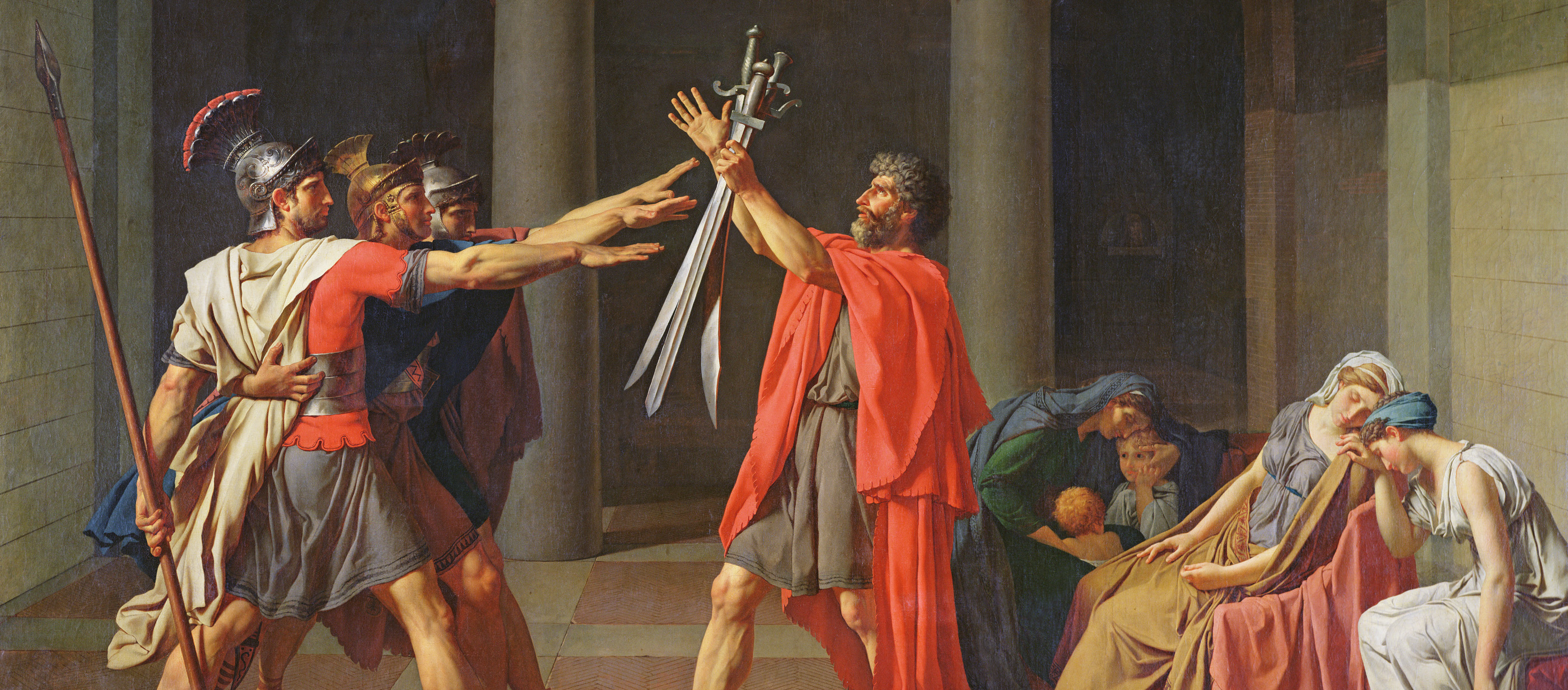
The Oath of the Horatii, by Jacques-Louis David, 1784. Louvre, Paris, France.
“Within the lifetime of the child already born,” Clifford went on, “all this will be done away. The world is growing too ethereal and spiritual to bear these enormities a great while longer. To me—though, for a considerable period of time, I have lived chiefly in retirement and know less of such things than most men—even to me, the harbingers of a better era are unmistakable. Mesmerism now! Will that effect nothing, think you, toward purging away the grossness out of human life?’’
“All a humbug!” growled the old gentleman.
“Then there is electricity!—the demon, the angel, the mighty physical power, the all-pervading intelligence!’’ exclaimed Clifford. “Is that a humbug too? Is it a fact—or have I dreamed it—that, by means of electricity, the world of matter has become a great nerve, vibrating thousands of miles in a breathless point of time? Rather, the round globe is a vast head, a brain, instinct with intelligence! Or, shall we say, it is itself a thought, nothing but thought, and no longer the substance which we deemed it!”
“If you mean the telegraph,” said the old gentleman, glancing his eye toward its wire alongside the rail track, “it is an excellent thing—that is, of course, if the speculators in cotton and politics don’t get possession of it. A great thing, indeed, sir; particularly as regards the detection of bank robbers and murderers.’’
“I don’t quite like it, in that point of view,” replied Clifford. “A bank robber, and what you call a murderer, likewise, has his rights, which men of enlightened humanity and conscience should regard in so much the more liberal spirit, because the bulk of society is prone to controvert their existence. An almost spiritual medium, like the electric telegraph, should be consecrated to high, deep, joyful, and holy missions. Lovers, day by day—hour by hour, if so often moved to do it—might send their heartthrobs from Maine to Florida with some such words as these: ‘I love you forever!’; ‘My heart runs over with love!’; ‘I love you more than I can!’; and again, at the next message: ‘I have lived an hour longer, and love you twice as much!’ Or, when a good man has departed, his distant friend should be conscious of an electric thrill, as from the world of happy spirits, telling him, ‘Your dear friend is in bliss!’ Or, to an absent husband, should come tidings thus: ‘An immortal being, of whom you are the father, has this moment come from God!’—and immediately, its little voice would seem to have reached so far, and to be echoing in his heart. But for these poor rogues, the bank robbers—who, after all, are about as honest as nine people in ten except that they disregard certain formalities and prefer to transact business at midnight rather than exchange hours—and for these murderers, as you phrase it, who are often excusable in the motives of their deed and deserve to be ranked among public benefactors, if we consider only its result—for unfortunate individuals like these, I really cannot applaud the enlistment of an immaterial and miraculous power in the universal world hunt at their heels!”
“You can’t, hey?” cried the old gentleman, with a hard look.
“Positively, no!” answered Clifford. “It puts them too miserably at disadvantage. For example, sir, in a dark, low, crossbeamed, paneled room of an old house, let us suppose a dead man, sitting in an armchair with a bloodstain on his shirt bosom—and let us add to our hypothesis another man, issuing from the house, which he feels to be overfilled with the dead man’s presence—and let us lastly imagine him fleeing, heaven knows whither, at the speed of a hurricane, by railroad! Now, sir, if the fugitive alights in some distant town and finds all the people babbling about that selfsame dead man, whom he has fled so far to avoid the sight and thought of, will you not allow that his natural rights have been infringed? He has been deprived of his city of refuge and, in my humble opinion, has suffered infinite wrong!’’
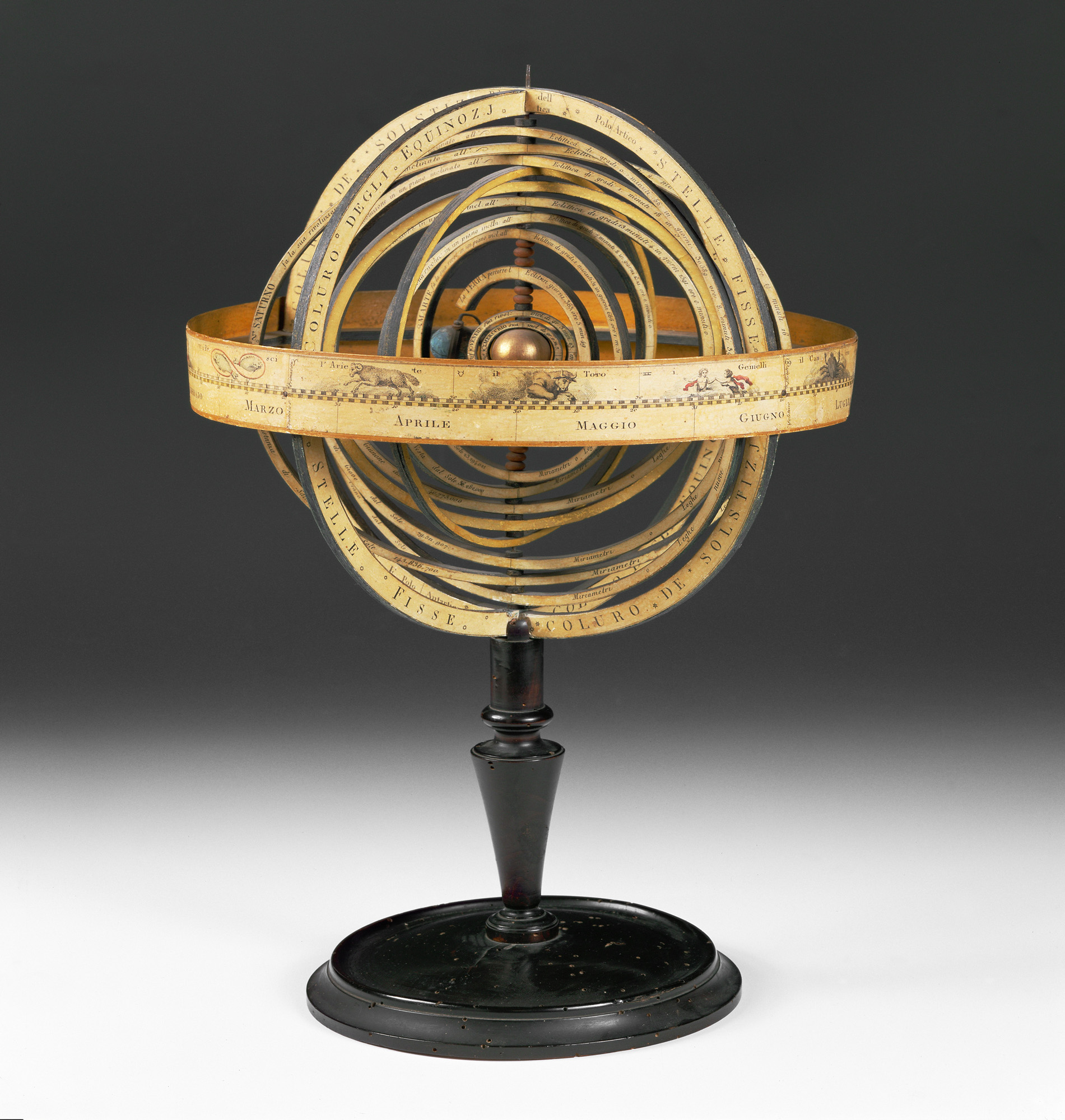
Heliocentric armillary sphere, early nineteenth century, Italy. Erich Lessing, Art Resource.
“You are a strange man, sir!” said the old gentleman, bringing his gimlet eye to a point on Clifford, as if determined to bore right into him. “I can’t see through you!’’
“No, I’ll be bound you can’t!” cried Clifford, laughing. “And yet, my dear sir, I am as transparent as the water of Maule’s well! But come, Hepzibah! We have flown far enough for once. Let us alight, as the birds do, and perch ourselves on the nearest twig and consult whither we shall fly next!”

Nathaniel Hawthorne
From The House of the Seven Gables. Hawthorne published this novel, his third, in 1851. In the U.S. the first passenger railway was unveiled in 1830 and the first electric telegraph message—“What hath God wrought?”—was sent in 1844. In August 1850 Hawthorne befriended Herman Melville, who published Moby-Dick in November 1851 and included a dedication to the older writer proclaiming “admiration for his genius.” Former president Franklin Pierce, a classmate of Hawthorne’s at Bowdoin College, was with Hawthorne when he died in 1864.
